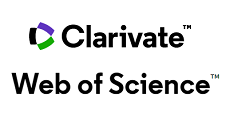
Published
Statistical Study on Domestic Gas Boiler Failures Using Various Software Platforms
Estudio estadístico de fallos en calderas de gas domésticas utilizando diversas plataformas de software
DOI:
https://doi.org/10.15446/ing.investig.112017Keywords:
gas equipment failures, quality management, equipment reliability, cluster analysis, statistical data processing software (en)fallos en equipos de gas, gestión de calidad, fiabilidad de equipos, análisis de conglomerados, software de procesamiento de datos estadísticos (es)
Downloads
Modern public utilities require a high level of reliability, especially with regard to systems used for heating and hot water supply, such as gas boilers. This paper collected and studied statistical information on the failures of gas boilers of four brands. The data were provided by three service companies that repair gas equipment in Kaliningrad, in the Russian Federation. The specifics of these failures were studied, determining their possible causes, and they were stratified by severity. Service companies typically have to use existing platforms (supplementing them with add-ons) or develop their own software to analyze failure statistics. In this regard, they are interested in the emergence of simple and effective tools for monitoring the quality of gas boiler maintenance and repair work. In this study, we used both the publicly available Scikit-learn library of the Jupyter Notebook environment and a custom program to perform data clustering. The main goal was to conduct a comparative assessment of the reliability of gas boilers of various brands based on the analysis of their failure statistics, as well as to develop a software product that enables such an assessment.
Las empresas de servicios públicos modernas requieren un alto nivel de fiabilidad, especialmente en lo que respecta a los sistemas utilizados para calefacción y suministro de agua caliente, como las calderas de gas. Este artículo recopiló y estudió información estadística sobre las fallas de calderas de gas de cuatro marcas. Los datos fueron proporcionados por tres empresas de servicio que reparan equipos de gas en Kaliningrado, en la Federación de Rusia. Se analizaron las características específicas de estas fallas, determinando sus posibles causas, y se clasificaron según su gravedad. Las empresas de servicio generalmente deben utilizar plataformas existentes (complementándolas con extensiones) o desarrollar su propio software para analizar estadísticas de fallos. En este sentido, están interesadas en el desarrollo de herramientas simples y efectivas para monitorear la calidad del mantenimiento y las reparaciones de calderas de gas. En este estudio, se utilizó tanto la biblioteca de código abierto Scikit-learn del entorno Jupyter Notebook como un programa personalizado para realizar la agrupación de datos. El objetivo principal fue realizar una evaluación comparativa de la fiabilidad de las calderas de gas de diferentes marcas en función del análisis de sus estadísticas de fallos, así como desarrollar un producto de software que permita dicha evaluación.
References
S. Liu, “Corrosion failure analysis of the heat exchanger in a hot water heating boiler,” Eng. Fail. Anal., vol. 142, no. 1, pp. 106847, Jan. 2022. https://doi.org/10.1016/j.engfailanal.2022.106847 DOI: https://doi.org/10.1016/j.engfailanal.2022.106847
F. Samanlioglu, “Evaluation of gas-fired combi boil-ers with HF-AHP-MULTIMOORA,” Appl. Comput. Intell. Soft Comput., vol. 2022, no. 1, pp. 1–10, Jan. 2022. https://doi.org/10.1155/2022/9225491 DOI: https://doi.org/10.1155/2022/9225491
K. Simic, “Modelling of a gas-fired heating boiler unit for residential buildings based on publicly available test da-ta,” Energy Build., vol. 253, no. 1, art. 111451, Jan. 2021. https://doi.org/10.1016/j.enbuild.2021.111451 DOI: https://doi.org/10.1016/j.enbuild.2021.111451
K. Ritosa, “A probabilistic approach to include the overall efficiency of gas-fired heating systems in urban build-ing energy modelling,” J. Phys. Conf. Ser., vol. 2069, no. 1, art. 012105, Jan. 2021. https://doi.org/10.1088/1742-6596/2069/1/012105 DOI: https://doi.org/10.1088/1742-6596/2069/1/012105
Y. Chang, “Statistics and analysis of test data of industrial boiler approved products in 2020,” in Proc. Int. Conf. Adv. Manuf. Technol. Manuf. Syst. (ICAMTMS), vol. 12309, pp. 604–610, Jan. 2022. https://doi.org/10.1117/12.2645720 DOI: https://doi.org/10.1117/12.2645720
V. Prabhu and D. Chaudhary, “Machine learning-enabled condition monitoring models for predictive mainte-nance of boilers,” in Proc. 4th Int. Conf. Recent Dev. Control Autom. Power Eng. (RDCAPE), Nov. 2021, pp. 426–430. https://doi.org/10.1109/RDCAPE52977.2021.9633534 DOI: https://doi.org/10.1109/RDCAPE52977.2021.9633534
A. R. Aikin, “The process of effective predictive maintenance,” Tribol. Lubr. Technol., vol. 77, no. 2, pp. 34–40, Feb. 2021
S. Mohanty, K. C. Rath, and O. P. Jena, “Implemen-tation of total productive maintenance (TPM) in the manu-facturing industry for improving production effectiveness,” in Industrial Transformation, 1st ed. Boca Raton, FL, USA: CRC Press, 2022, pp. 45–60. https://doi.org/10.1201/9781003229018-3 DOI: https://doi.org/10.1201/9781003229018-3
N. Xodjiev et al., “Analysis of the resource-saving method for calculating the heat balance of the installation of hot-water heating boilers,” in AIP Conf. Proc., vol. 2432, no. 1, art. 020019, Jan. 2022. https://doi.org/10.1063/5.0090455 DOI: https://doi.org/10.1063/5.0090455
W. Ma et al., “Energy efficiency indicators for com-bined cooling, heating, and power systems,” Energy Con-vers. Manag., vol. 239, art. 114187, Jan. 2021. https://doi.org/10.1016/j.enconman.2021.114187 DOI: https://doi.org/10.1016/j.enconman.2021.114187
M. Larbi Rebaiaia and D. Aït-Kadi, “Maintenance policies with minimal repair and replacement on failures: Analysis and comparison,” Int. J. Prod. Res., vol. 59, no. 23, pp. 6995–7017, Dec. 2021. https://doi.org/10.1080/00207543.2020.1832275 DOI: https://doi.org/10.1080/00207543.2020.1832275
J. Leukel, J. González, and M. Riekert, “Adoption of machine learning technology for failure prediction in indus-trial maintenance: A systematic review,” J. Manuf. Syst., vol. 61, pp. 87–96, Jan. 2021. https://doi.org/10.1016/j.jmsy.2021.08.012 DOI: https://doi.org/10.1016/j.jmsy.2021.08.012
C. Acuña-Soto, V. Liern, and B. Pérez-Gladish, “Nor-malization in TOPSIS-based approaches with data of differ-ent nature: Application to the ranking of mathematical vid-eos,” Ann. Oper. Res., vol. 296, no. 1, pp. 541–569, Jan. 2021. https://doi.org/10.1007/s10479-018-2945-5 DOI: https://doi.org/10.1007/s10479-018-2945-5
A. Chabane, S. Adjerid, and I. Meddour, “Depend-ability analysis in systems engineering approach using the FMECA extracted from the SysML and failure modes classifi-cation by K-means,” Int. J. Dyn. Cont., vol. 10, no. 3, pp. 981–998, Jul. 2022. https://doi.org/10.1007/s40435-021-00855-8 DOI: https://doi.org/10.1007/s40435-021-00855-8
F. Aksan et al., “Clustering methods for power quality measurements in virtual power plants,” Energies, vol. 14, no. 18, p. 5902, Sep. 2021. https://doi.org/10.3390/en14185902 DOI: https://doi.org/10.3390/en14185902
W. Peiyi et al., “Analysis and research on enterprise resumption of work and production based on K-means clus-tering,” in Proc. 6th Int. Conf. Big Data Anal. (IC-BDA), pp. 169–174, Dec. 2021. https://doi.org/10.1109/ICBDA51983.2021.9403217 DOI: https://doi.org/10.1109/ICBDA51983.2021.9403217
L. Quaranta, F. Calefato, and F. Lanubile, “KGTor-rent: A dataset of Python Jupyter notebooks from Kaggle,” in Proc. IEEE/ACM 18th Int. Conf. Mining Softw. Repos. (MSR), May 2021, pp. 550–554. https://doi.org/10.1109/MSR52588.2021.00072 DOI: https://doi.org/10.1109/MSR52588.2021.00072
H. Fangohr, T. Kluyver, and M. Dipierro, “Jupyter in computational science,” Comput. Sci. Eng., vol. 23, no. 2, pp. 5–6, Mar. 2021. https://doi.org/10.1109/MCSE.2021.3059494 DOI: https://doi.org/10.1109/MCSE.2021.3059494
C. J. Weiss and A. Klose, “Introducing students to scientific computing in the laboratory through Python and Jupyter notebooks,” in ACS Symp. Ser. Teach. Program. Across Chem. Curric., Jan. 2021, pp. 57–67. https://doi.org/10.1021/bk-2021-1387.ch005 DOI: https://doi.org/10.1021/bk-2021-1387.ch005
E. Mazur, P. Shcherban, and V. Mazur, “Research and evaluation of the operating characteristics of used ship engine oil using the process parameter matrix method,” FME Trans., vol. 51, no. 4, pp. 497–503, Dec. 2023. https://doi.org/10.5937/fme2304497M DOI: https://doi.org/10.5937/fme2304497M
J. Piazentin Ono, J. Freire, and C. T. Silva, “Interactive data visualization in Jupyter notebooks,” Comput. Sci. Eng., vol. 23, no. 2, pp. 99–106, Mar. 2021. https://doi.org/10.1109/MCSE.2021.3052619 DOI: https://doi.org/10.1109/MCSE.2021.3052619
P. Shcherban, A. Sokolov, and R. A. Hamdi, “Study of failure statistics of cavitators in the fuel oil facilities through the application of regression and cluster analysis,” Proc. Eng. Sci., vol. 5, no. 1, pp. 39–48, Jan. 2023. https://doi.org/10.24874/PES05.01.004 DOI: https://doi.org/10.24874/PES05.01.004
J. Zhao et al., “Root cause analysis of a cracked primary heat exchanger in a gas wall-mounted boiler,” Eng. Fail. Anal., vol. 153, art. 107583, Jan. 2023. https://doi.org/10.1016/j.engfailanal.2023.107583 DOI: https://doi.org/10.1016/j.engfailanal.2023.107583
R. Oliver, A. Duffy, and I. Kilgallon, “Statistical models to infer gas end-use efficiency in individual dwellings using smart metered data,” Sustain. Cities Soc., vol. 23, pp. 1–10, Nov. 2016. https://doi.org/10.1016/j.scs.2016.01.009 DOI: https://doi.org/10.1016/j.scs.2016.01.009
Z. Liao, M. Swainson, and A. L. Dexter, “On the con-trol of heating systems in the UK,” Build. Environ., vol. 40, no. 3, pp. 343–351, Mar. 2005. https://doi.org/10.1016/j.buildenv.2004.05.014 DOI: https://doi.org/10.1016/j.buildenv.2004.05.014
A. V. Gubarev, “Determination of the thermotech-nical measures of the condensing water heating boiler’s high-temperature section,” in IOP Conf. Ser. Mater. Sci. Eng., vol. 791, no. 1, art. 012011, Jan. 2020. https://doi.org/10.1088/1757-899X/791/1/012011 DOI: https://doi.org/10.1088/1757-899X/791/1/012011
M. Bukurov, S. Bikić, and B. Marković, “Efficiency and management of gas boilers in public buildings in Voj-vodina,” J. Process. Energy Agric., vol. 20, no. 2, pp. 87–92, Jun. 2016.
J. P. Xu, X. Q. Ma, and H. Shen, “Remote control system design for domestic wall-mounted gas boilers based on GSM modem,” Adv. Mater. Res., vol. 650, pp. 559–564, Mar. 2013. https://doi.org/10.4028/www.scientific.net/AMR.650.559 DOI: https://doi.org/10.4028/www.scientific.net/AMR.650.559
M. S. Mahmud et al., “A survey of data partitioning and sampling methods to support big data analysis,” Big Data Min. Anal., vol. 3, no. 2, pp. 85–101, Jun. 2020. https://doi.org/10.26599/BDMA.2019.9020015 DOI: https://doi.org/10.26599/BDMA.2019.9020015
A. M. Ikotun et al., “K-means clustering algorithms: A comprehensive review, variants analysis, and advances in the era of big data,” Inf. Sci., vol. 622, pp. 178–210, Jan. 2023. https://doi.org/10.1016/j.ins.2022.11.139 DOI: https://doi.org/10.1016/j.ins.2022.11.139
How to Cite
APA
ACM
ACS
ABNT
Chicago
Harvard
IEEE
MLA
Turabian
Vancouver
Download Citation
License
Copyright (c) 2024 Pavel Shcherban, Reda Abu-Khamdi

This work is licensed under a Creative Commons Attribution 4.0 International License.
The authors or holders of the copyright for each article hereby confer exclusive, limited and free authorization on the Universidad Nacional de Colombia's journal Ingeniería e Investigación concerning the aforementioned article which, once it has been evaluated and approved, will be submitted for publication, in line with the following items:
1. The version which has been corrected according to the evaluators' suggestions will be remitted and it will be made clear whether the aforementioned article is an unedited document regarding which the rights to be authorized are held and total responsibility will be assumed by the authors for the content of the work being submitted to Ingeniería e Investigación, the Universidad Nacional de Colombia and third-parties;
2. The authorization conferred on the journal will come into force from the date on which it is included in the respective volume and issue of Ingeniería e Investigación in the Open Journal Systems and on the journal's main page (https://revistas.unal.edu.co/index.php/ingeinv), as well as in different databases and indices in which the publication is indexed;
3. The authors authorize the Universidad Nacional de Colombia's journal Ingeniería e Investigación to publish the document in whatever required format (printed, digital, electronic or whatsoever known or yet to be discovered form) and authorize Ingeniería e Investigación to include the work in any indices and/or search engines deemed necessary for promoting its diffusion;
4. The authors accept that such authorization is given free of charge and they, therefore, waive any right to receive remuneration from the publication, distribution, public communication and any use whatsoever referred to in the terms of this authorization.



























